1. Overall of Thien Hau pagoda
Thien Hau pagoda (Empress of Heaven Pagoda) is the oldest Chinese pagoda in Ho Chi Minh city. The ancient building preserves many values of architectural artworks and artifacts, established by the Cantonese community. The beauty of Thien Hau pagoda attracts many visitors to admire and pray for health and peace for their families.
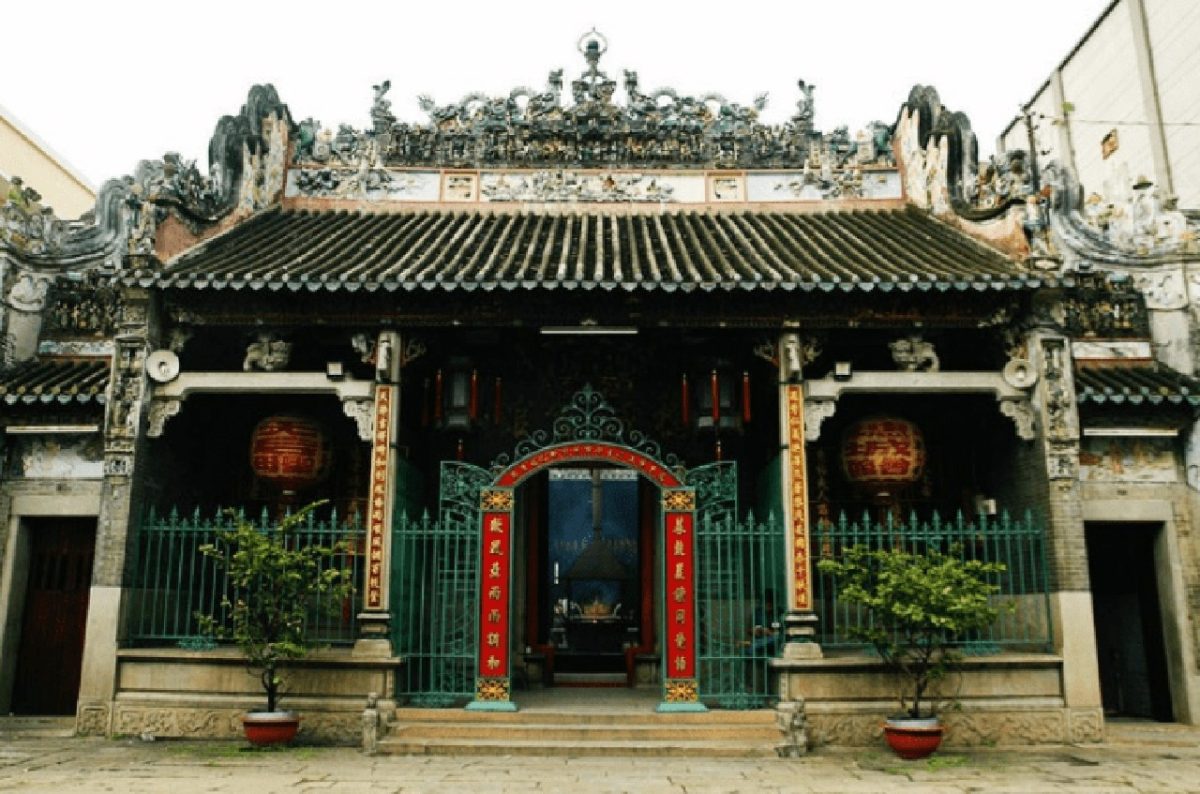
2. Where is Thien Hau pagoda
The ancient Chinese pagoda’s location is at 710 Nguyen Trai Street in the Cholon (Chinatown), District 5, Ho Chi Minh City. Chinatown is where Cantonese people gather to live when they move to Vietnam. It’s about 7 km from Nguyen Hue walking street with many entertaining activities. Thien Hau pagoda usually opens from 6:30 am to 4:30 pm.
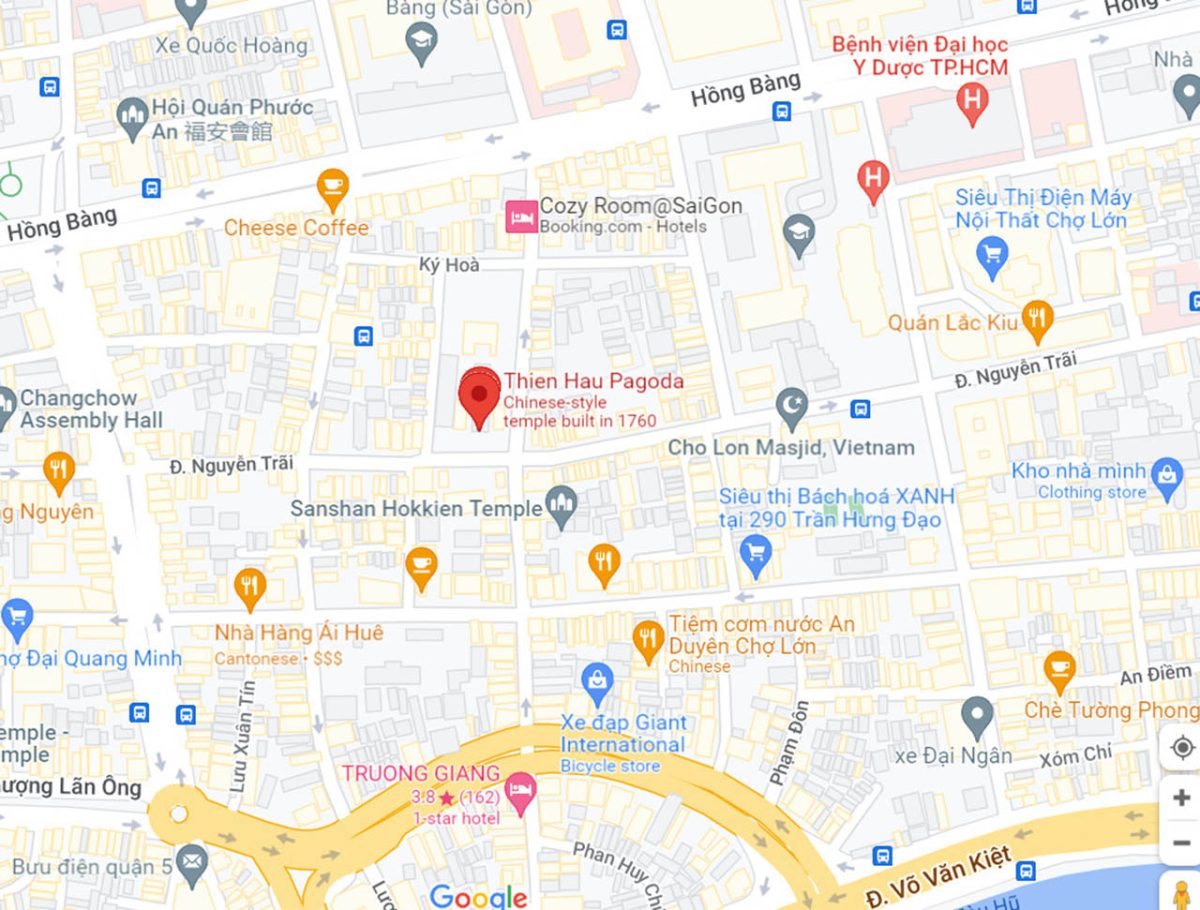
3. How can visitors get to the pagoda?
Because of its popularity, tourists can take a taxi or motorbike to get there. First-time visitors should go straight along Nguyen Thi Minh Khai Street and turn left at Luong Nhu Hoc street to arrive.
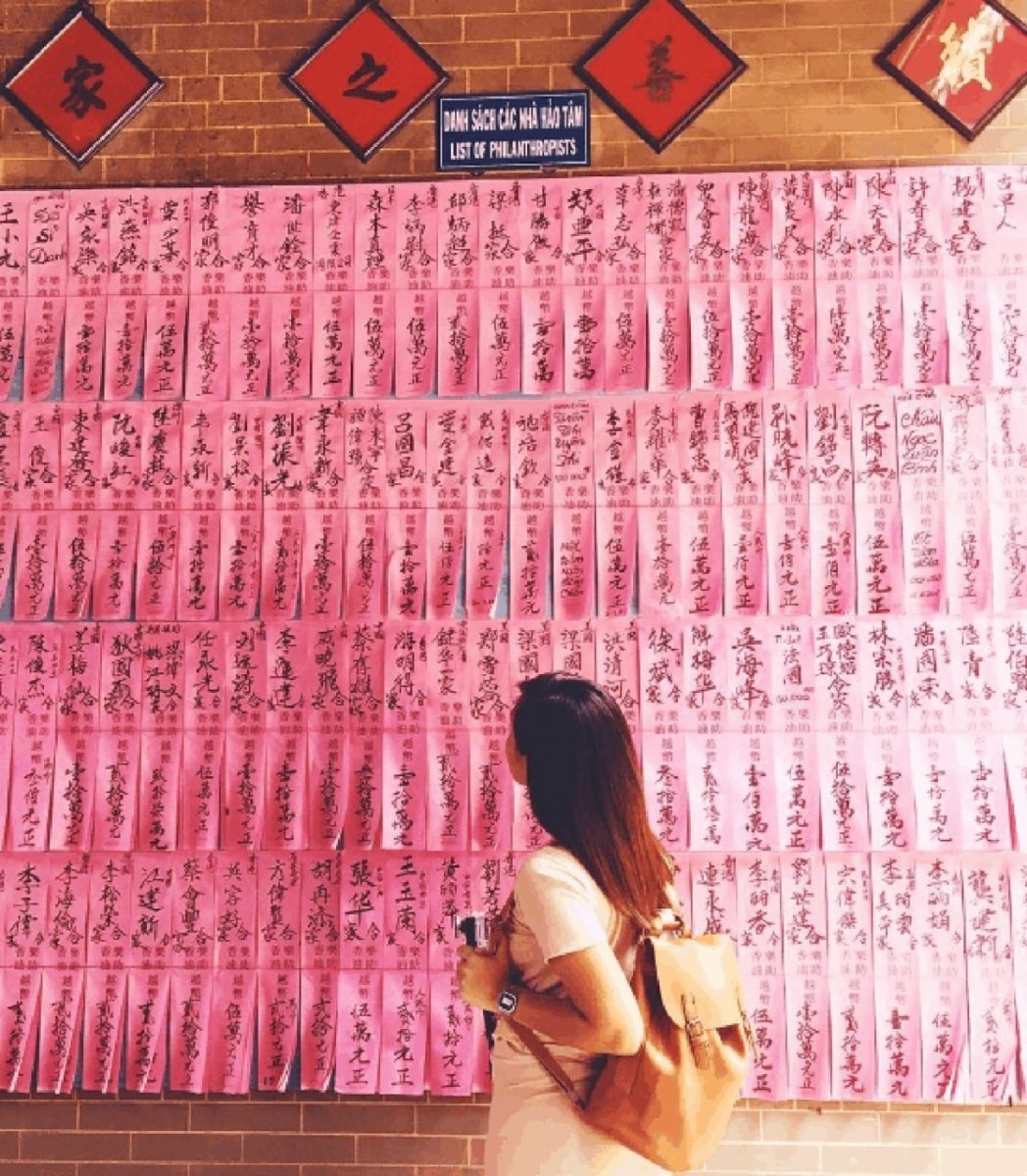
4. The legend of Thien Hau (Mazu)
Her childhood and adulthood
According to Vuong Hong Son, a scholar, Mazu – the Chinese Goddess of the Sea had the original name “Linh Moniang”. She is from Mi Chau Island, in Bo Duong (Phuoc Kien). She was born on March 23, 1044, and was a genius. Thien Hau Lady could read when she was 8 and started to
practice Taoism at the age of 11. At the age of 13, she received heavenly poetry: the god Vo Y came down to give a set of “The Secret of Origin” and found another stack of ancient books under the well, practiced, and attained enlightenment.
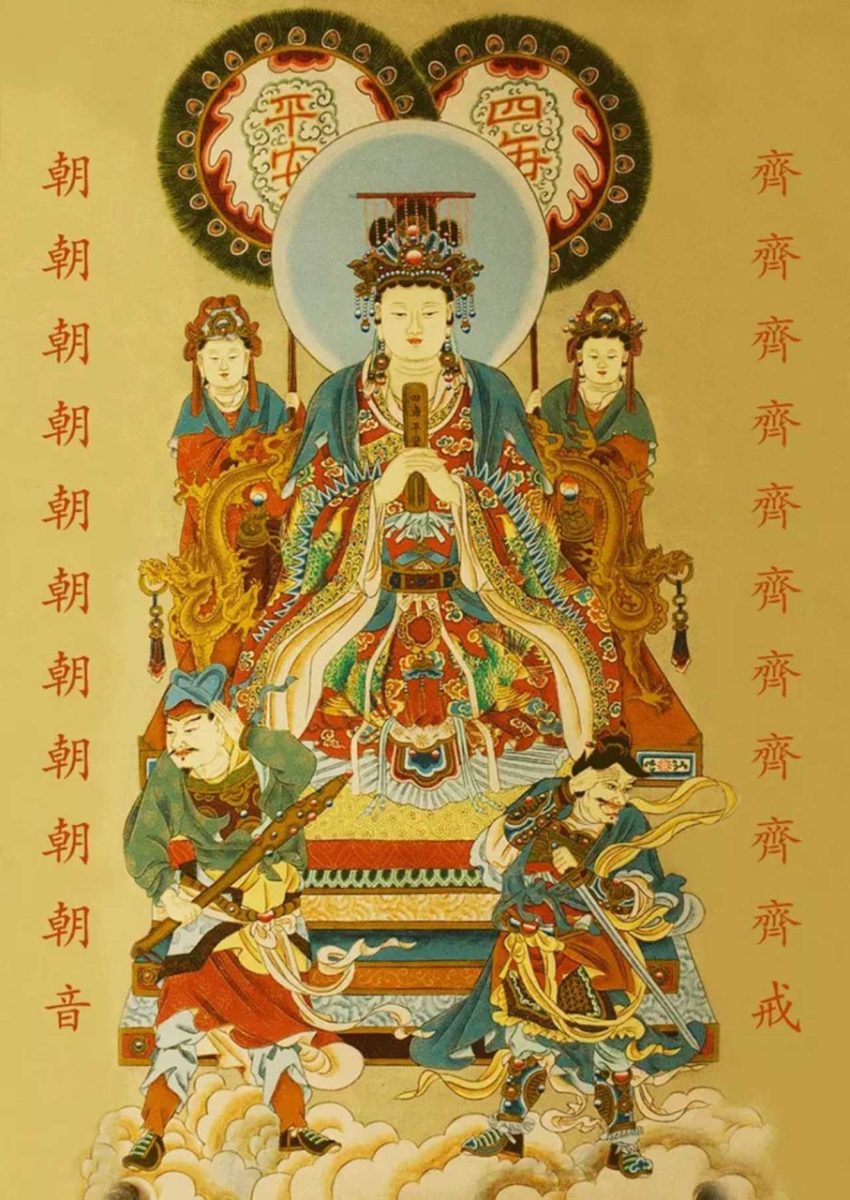
She saved her father and brothers
Once, her father was on a boat with her two brothers, carrying the salt to Jiangxi province to trade. Suddenly, a big storm came and wanted to swallow the boat. Meanwhile, Wazu was weaving cloth next to her mother, but she used her spiritual power to save her father and two brothers. She used her teeth to bite the cross of her father’s shirt, holding two brothers with both hands. However, her mother saw Mazu sitting still for a while, called her, and forced her to reply. While Mazu was replying to her mother, the waves washed her father away. Finally, only her two brothers were alive.
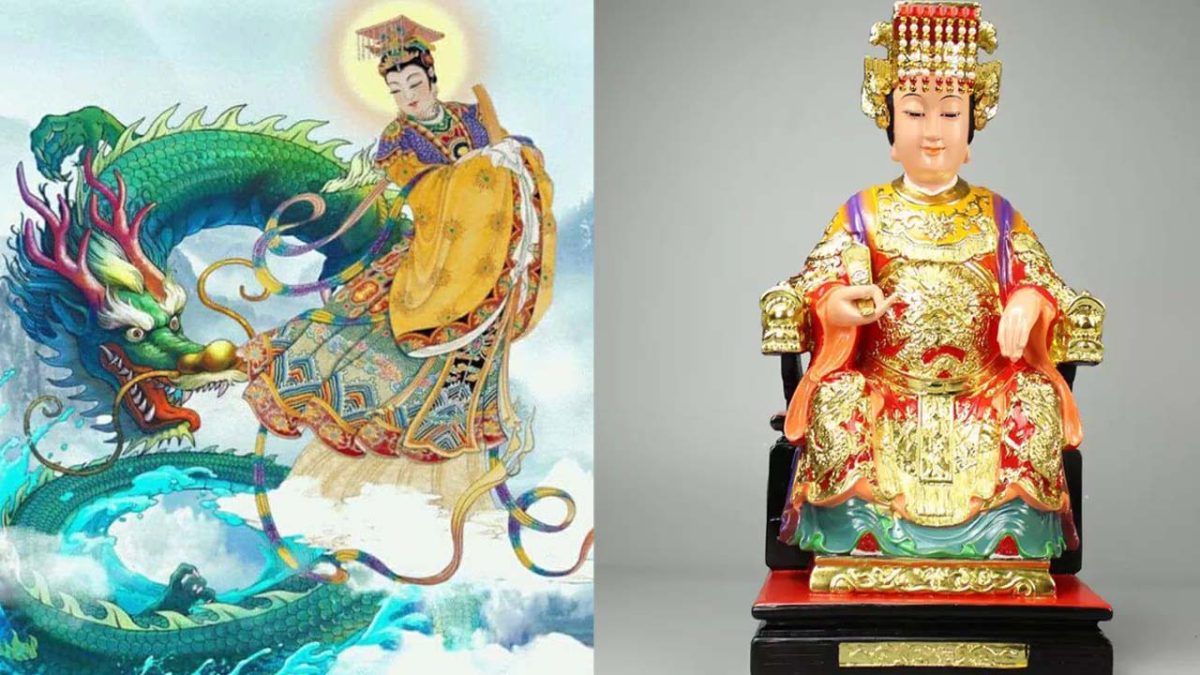
The god of the sea
At first, Chinese people in coastal areas, such as Qiaodou, Jiangkou, and Baihu worshipped her. From the 17th to 20th century, a lot of Chinese emigrated to Vietnam and other countries, so Mazu became a powerful god of the sea. In 1110, the Song Dynasty ordained her as the Empress of Heaven. Apart from supporting fishermen, she also helped farmers, gave rain, and killed monsters to protect human safety.
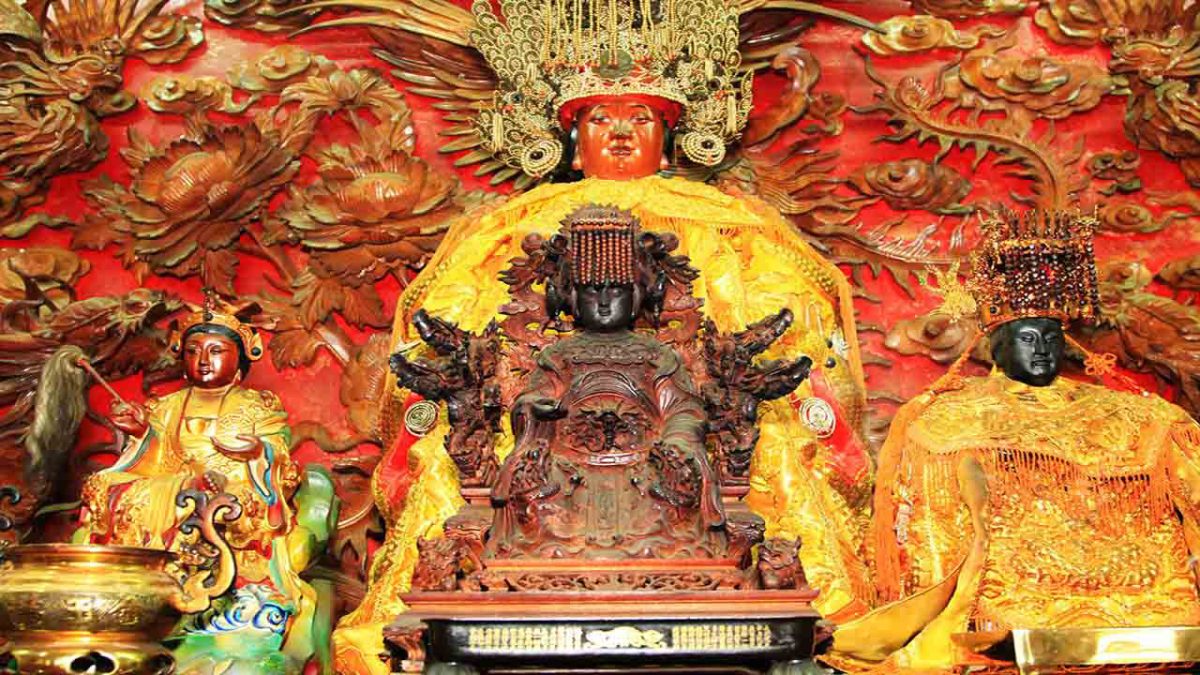
As a result, many people worship her as a mighty god to express gratitude for her protection when they face dangers. They believe that her power can help them overcome difficulties and live happy lives. Fishermen worship Wazu as a protector of fishermen and venerate her in Buddhism and Taoism in many Asian countries.
4. The history of Thien Hau pagoda
Thien Hau pagoda was built around 1760 in the 18th century by a group of Cantonese people. They immigrated to coastal regions of Vietnam to live and do their business. In the 1760s, they sailed on the sea to trade. These traders would worship a God of the sea on their ship and wish for her protection during their voyage. However, they had to stay in Vietnam during the rainy seasons due to storms. Therefore, a group of Chinese donated money to buy an assembly hall to shelter and worship their God.
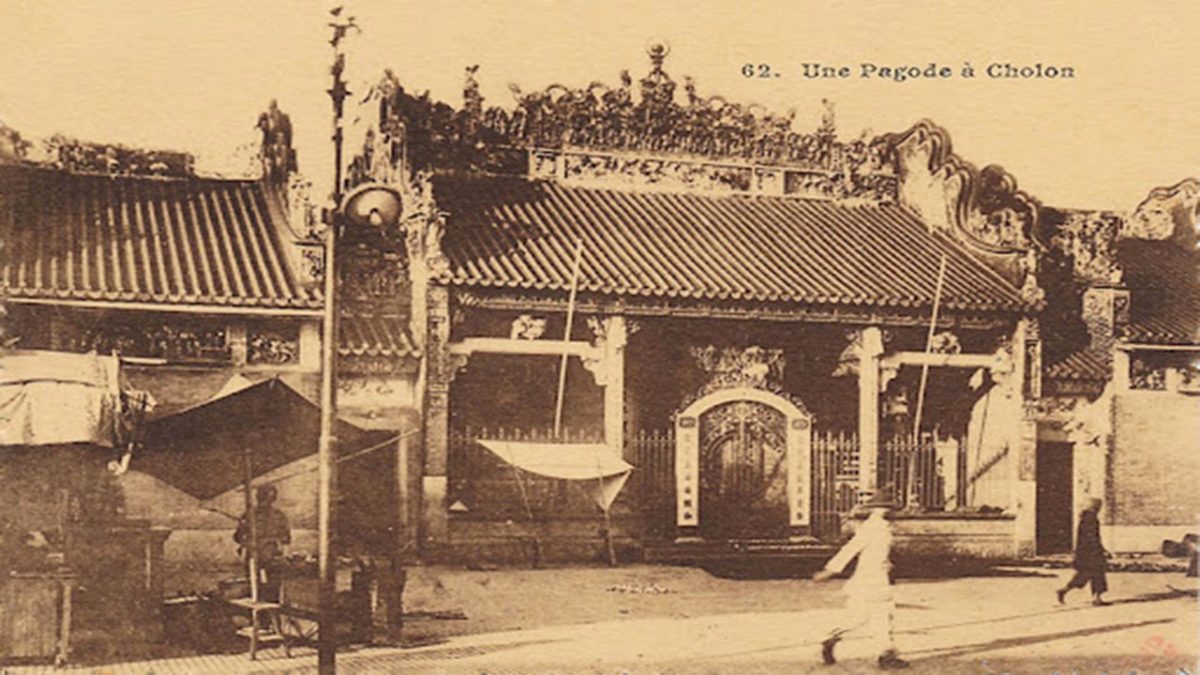
Although the 261-year-old pagoda underwent many renovations, people still keep its ancient and unique beauty. On January 7, 1993, the pagoda was recognized as a national architectural and artistic relic.
5. The architecture of the pagoda
The exterior
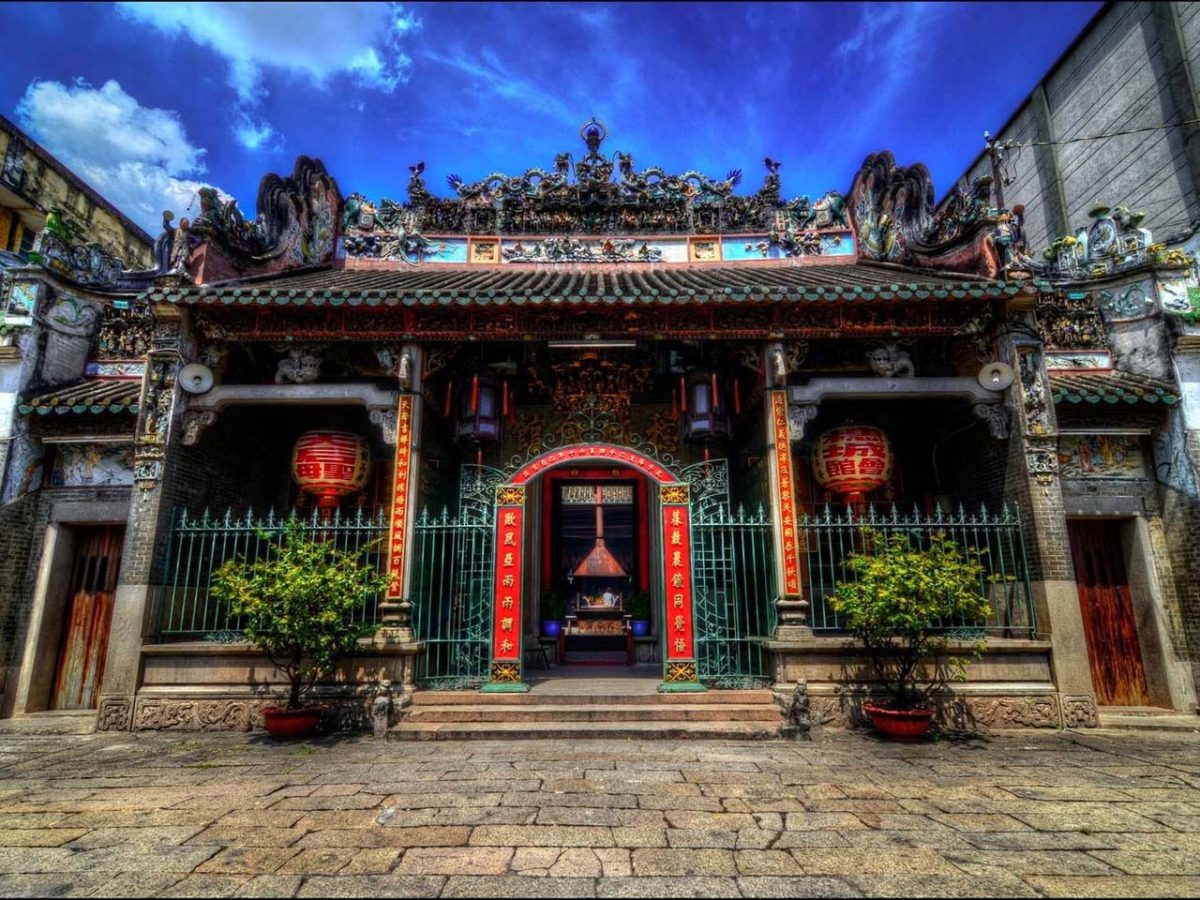
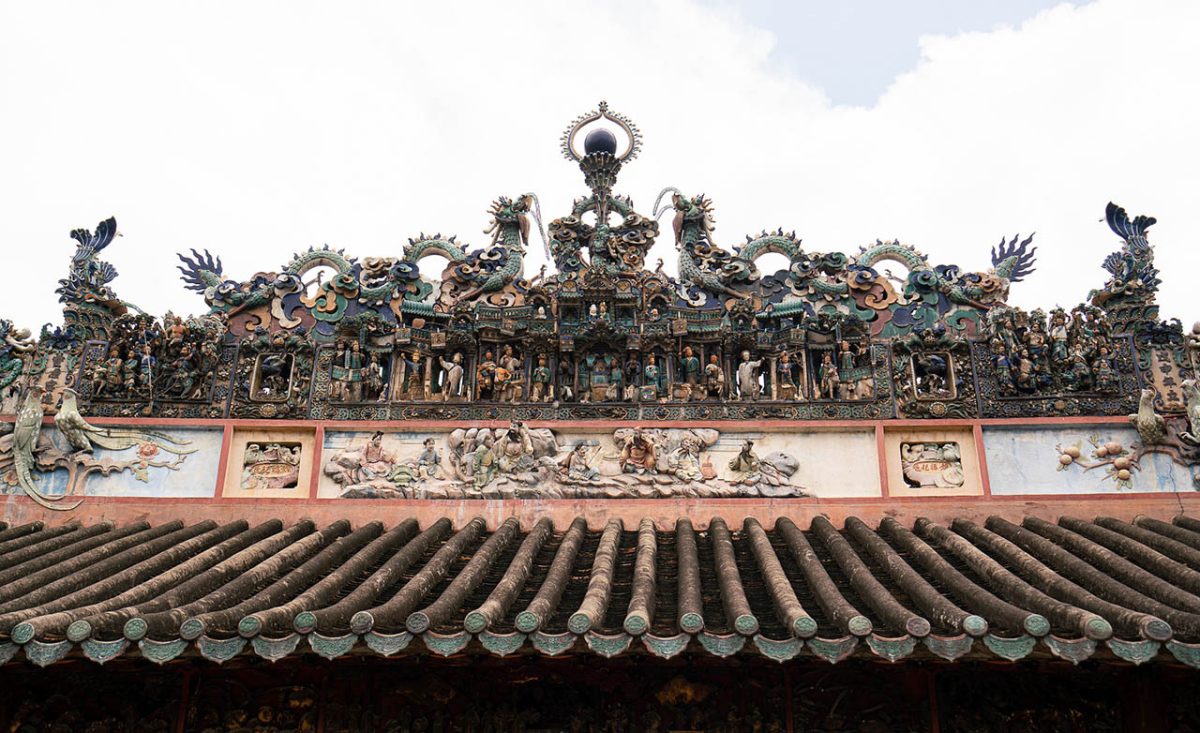
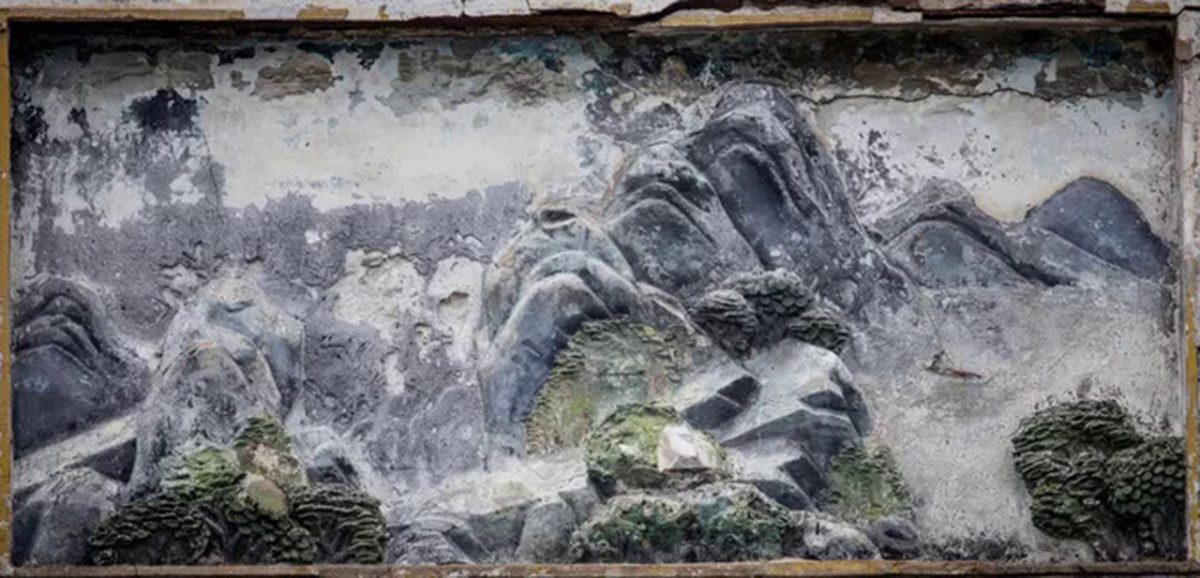
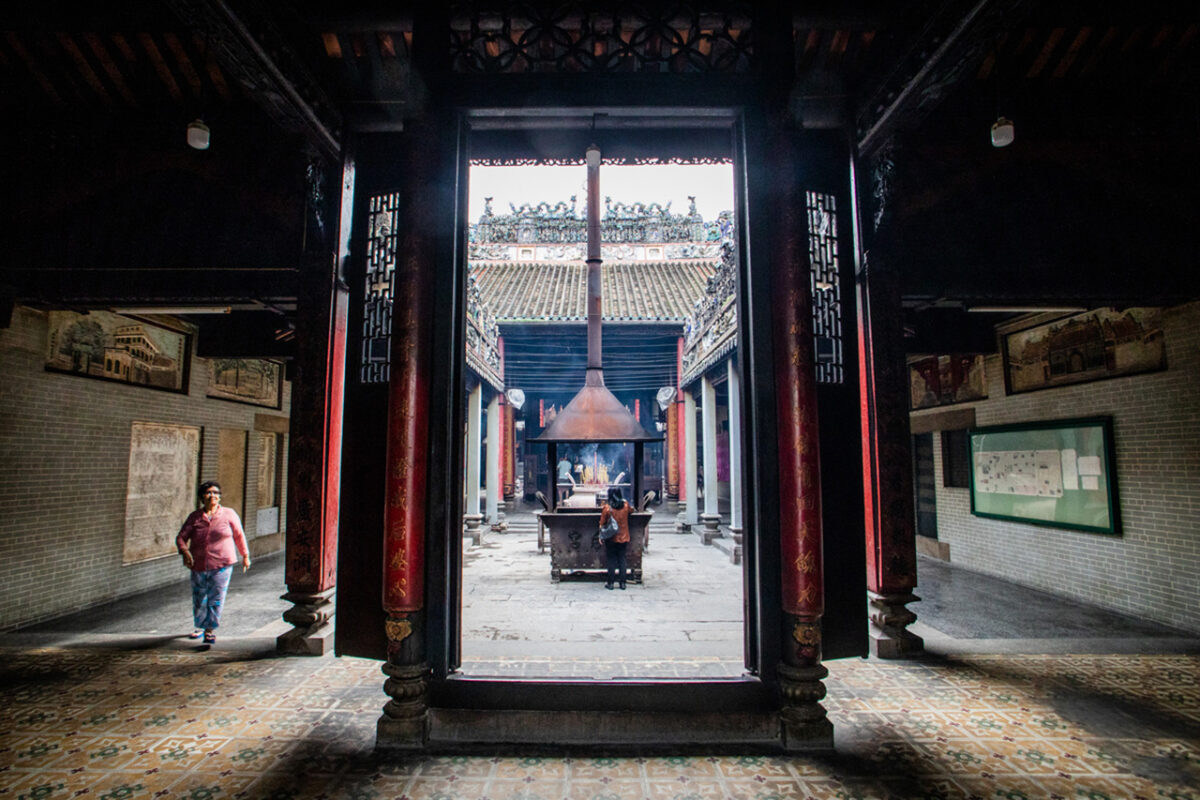
The interior
The front hall
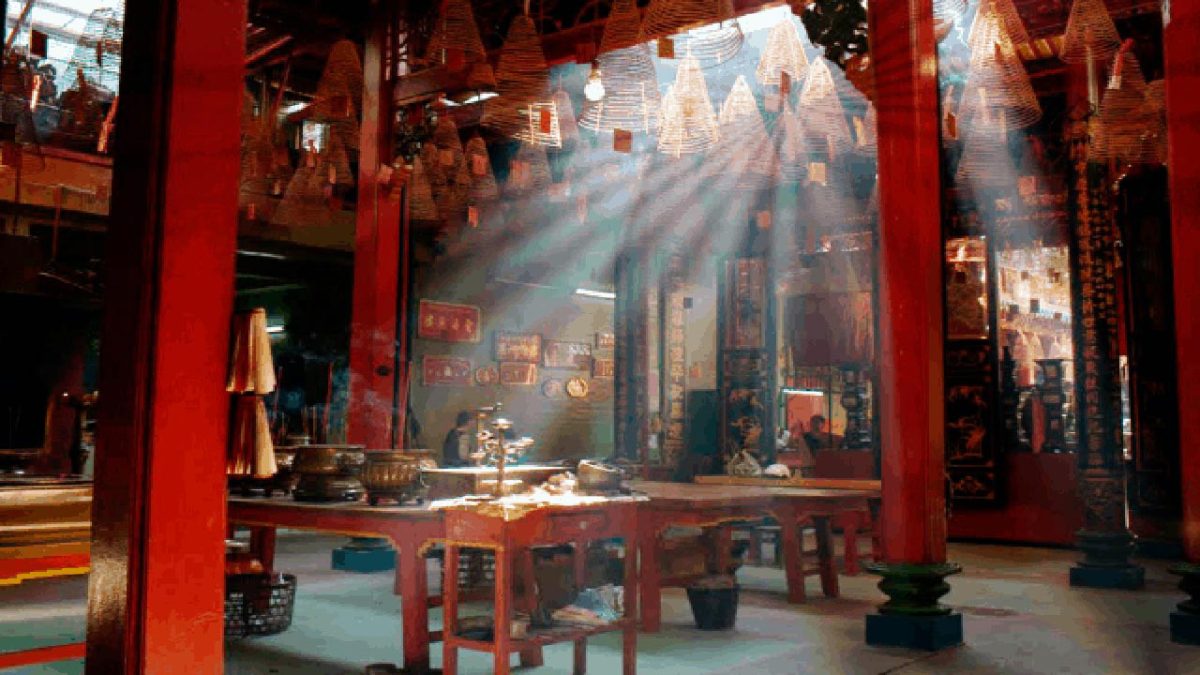
The central hall
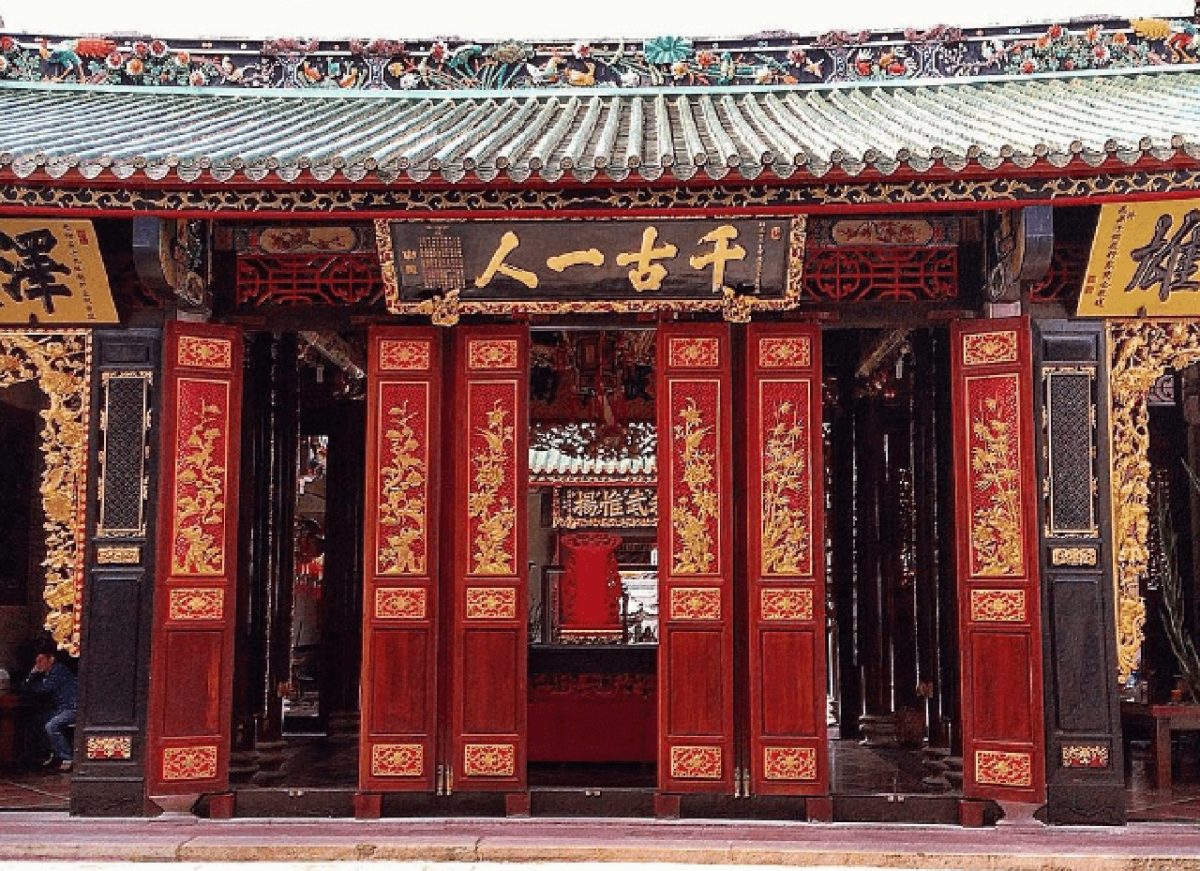
The main hall (The back hall)
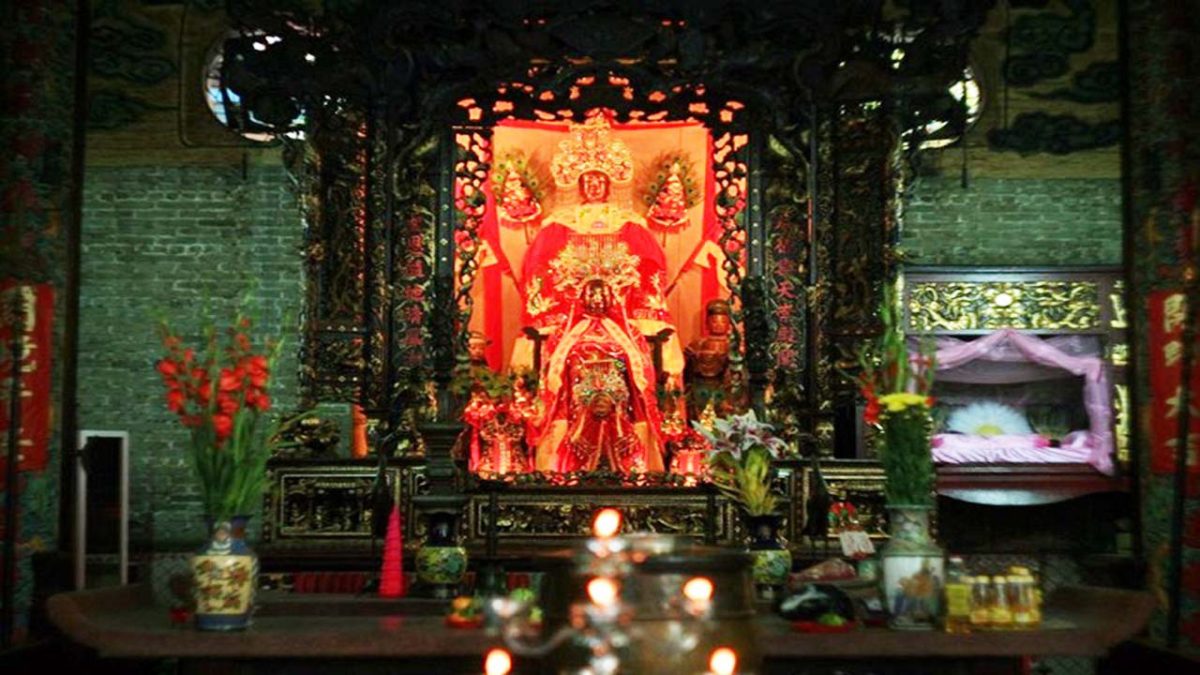
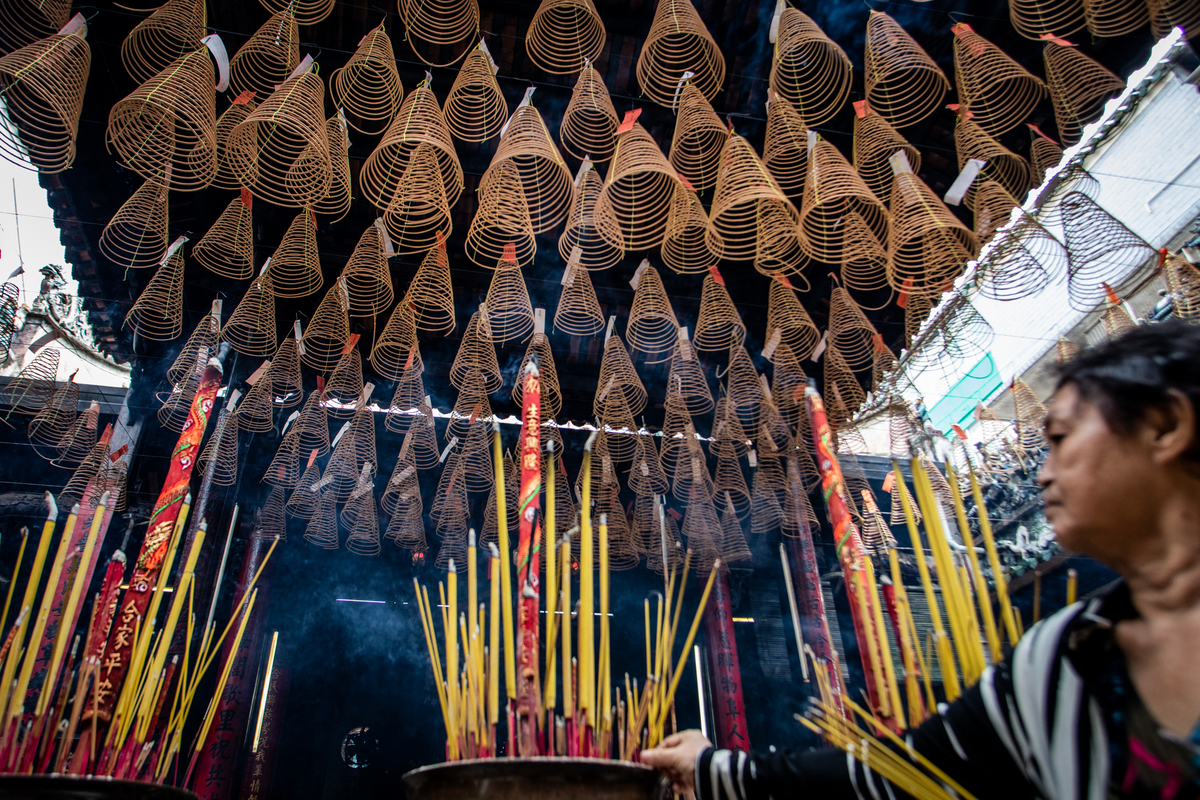
The pagoda preserves many valuable artifacts
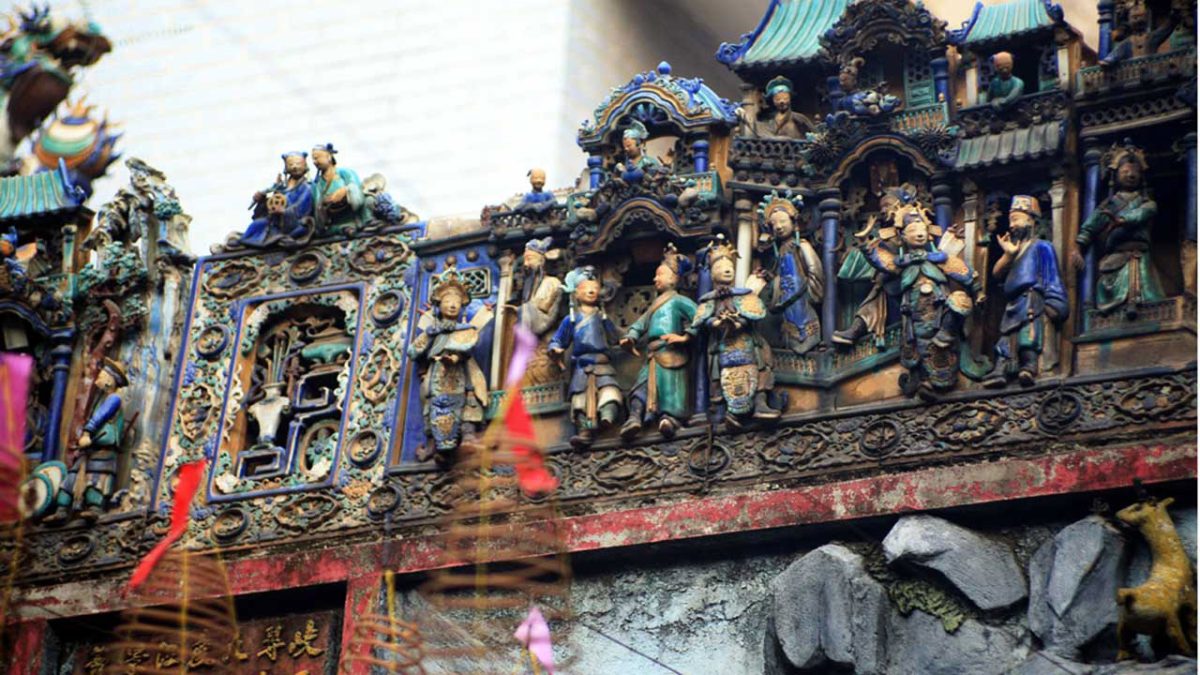
6. Some popular festivals in the pagoda
Apart from organizing traditional festivals relating to Buddhism, the biggest one is Mazu’s birthday. The ceremony usually occurs from March 22 to March 24 (lunar calendar) with many cultural activities. This attracts many Chinese and Vietnamese people come to worship for peace and happiness for their families. Therefore, this is a great chance for visitors to explore Mazu’s legend and this ceremony.
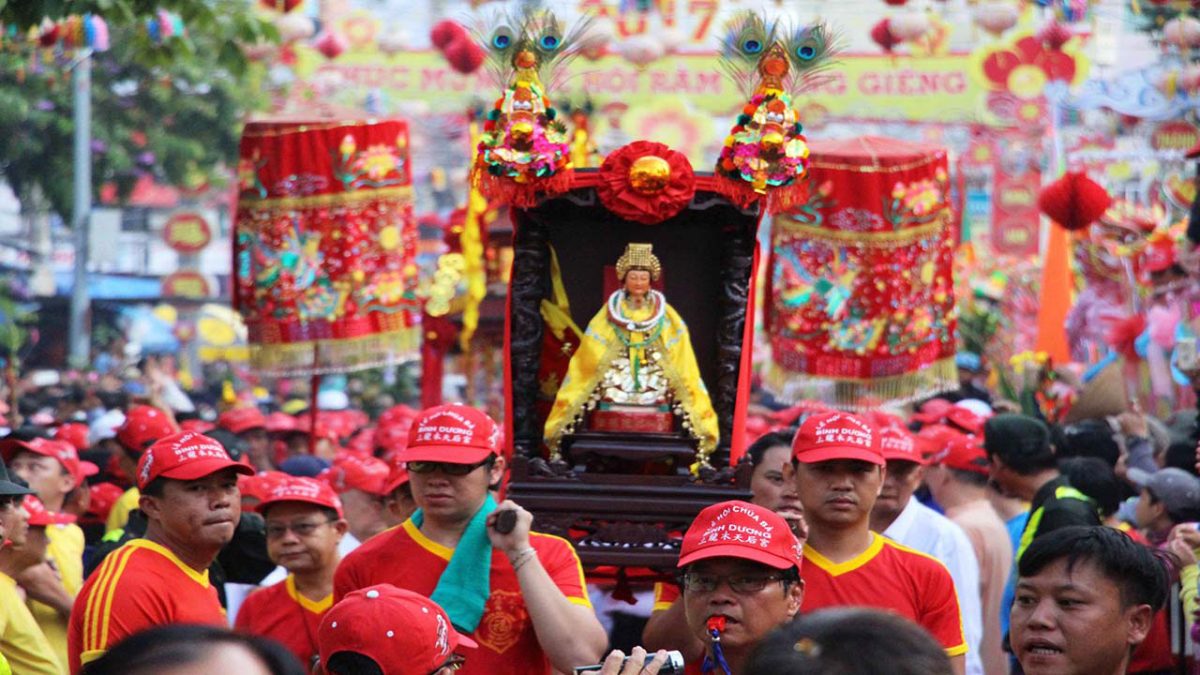
7. Nearby places of interest
Many other religious works are located near Thien Hau pagoda such as
- Guandi Temple Chinatown
- Hakka Assembly Hall
- Quynh Phu Assembly Hall
- Tam Son Assembly Hall
Source: https://en.wikipedia.org/


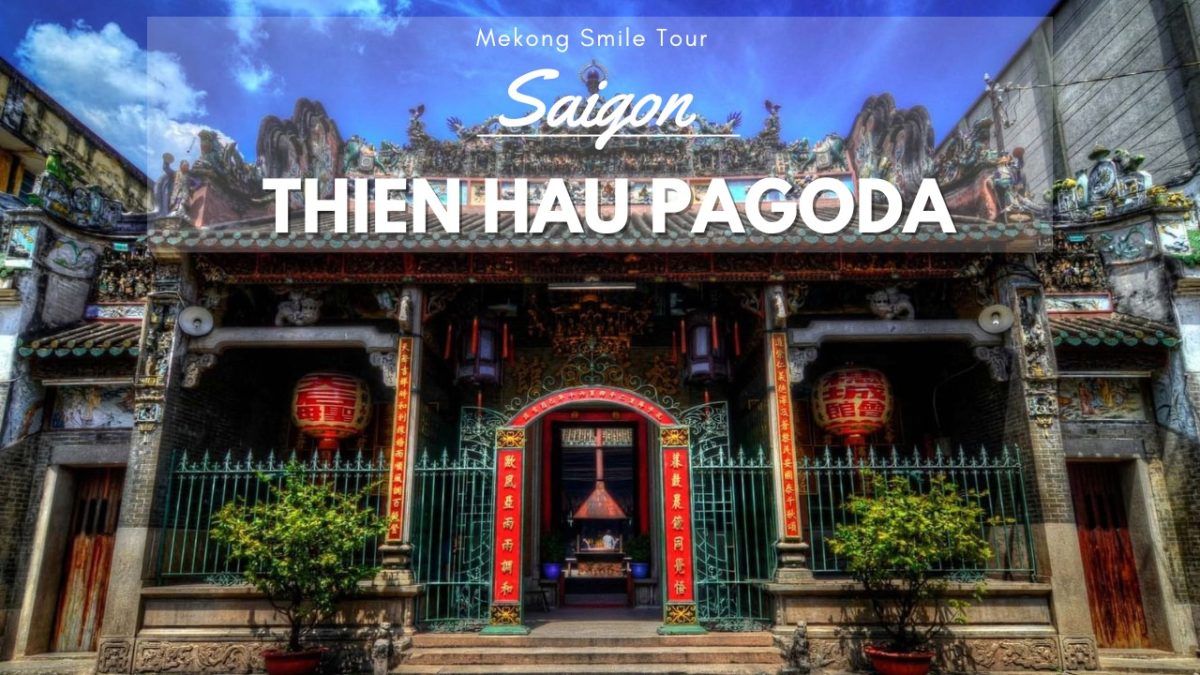




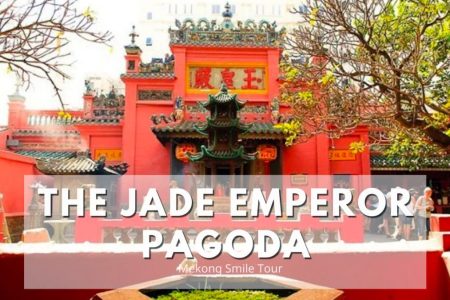

0 Comment